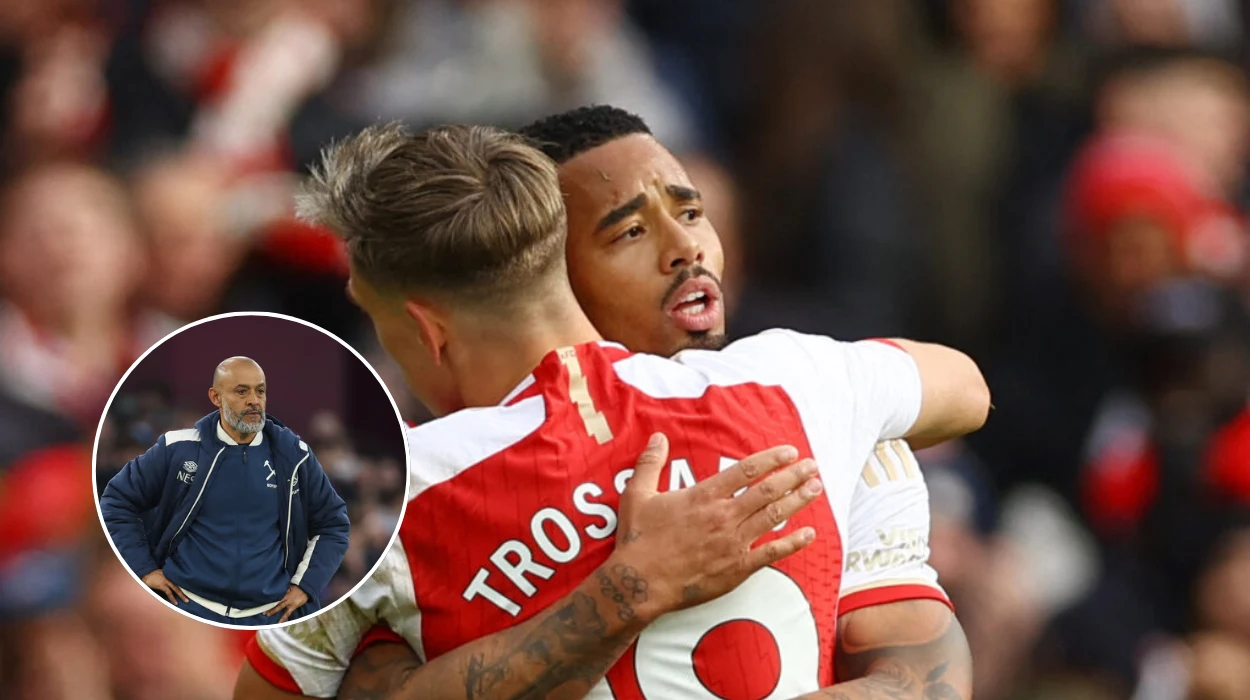Key Points
- West Ham United has won successive matches against Newcastle United and Burnley, climbing within reach of escaping the Premier League relegation zone.
- The Hammers have struggled for most of the season but have shown new fighting spirit under manager Nuno Espirito Santo.
- Arsenal striker Gabriel Jesus, sidelined for most of 2025 due to an ACL injury, is back in training and could return before the end of the year.
- Arsenal manager Mikel Arteta describes Jesus as “very unpredictable, full of energy, and super competitive,” highlighting his hunger after injury setbacks.
- With Arsenal’s attacking line returning to fitness, Gabriel Jesus may find limited playing time, making a loan move likely.
- West Ham urgently needs striking options, as senior forwards Callum Wilson and Niclas Fullkrug face fitness and injury issues.
- Callum Wilson is on a pay-as-you-play contract due to past injury problems, limiting his availability.
- Jesus had a purple patch at the end of 2024, scoring six goals in six matches before his injury.
- West Ham sees a loan deal for Jesus as a risk worth taking to boost their survival chances in the Premier League.
What is the current state of West Ham United’s Premier League campaign?
As reported by David Hytner of The Guardian, West Ham United have been entrenched in the Premier League’s relegation zone for nearly the entire season. However, recent victories against Newcastle United and Burnley—teams also facing struggles—have brought new hope for survival. In these games, the Hammers scored a total of six goals, showcasing an attacking resurgence under new head coach Nuno Espirito Santo.
Despite this improvement, Hytner warns that the fight to avoid relegation remains fierce. Newcastle, for example, have yet to secure an away win this season, and Burnley started as favourites to finish at the bottom. Still, West Ham’s recent wins have injected belief into their campaign.
Why is a January transfer move important for West Ham?
As detailed by Jamie Stone at London World, West Ham’s squad depth in attack is severely limited. Their senior striker Callum Wilson, aged 33, has only made three league starts and is currently on a pay-as-you-play contract due to recurring injuries he sustained at Newcastle United. Another forward, Niclas Fullkrug, is sidelined with injury, leaving West Ham thin in frontline options.
Stone points out that bringing in new striking talent during the January transfer window could be crucial. A key signing could provide the additional firepower necessary for the Hammers to climb out of the relegation zone and extend their 14-year run in the Premier League.
Why is Arsenal’s Gabriel Jesus a potential target for West Ham?
According to Football Fancast, Arsenal manager Mikel Arteta recently spoke positively about Gabriel Jesus’s return to training after an anterior cruciate ligament (ACL) injury that sidelined him for most of 2025. Arteta described Jesus as “a player who is very unpredictable, full of energy, and super competitive,” emphasising the Brazilian’s hunger and motivation following a challenging run of injuries.
Jesus is expected to be fit to play before the year’s end, but with Arsenal’s attacking options—including Kai Havertz and Viktor Gyökeres—returning to full health, Jesus may struggle for competitive playtime. This situation could make a short-term loan move appealing, especially in a World Cup year when regular game time is critical.
How could Gabriel Jesus improve West Ham’s chances of staying up?
Jamie Stone of London World observes that Jesus had been entering a purple patch of form prior to his injury, scoring six goals in six matches during the 2024 festive period. Integrating him into West Ham’s frontline alongside Callum Wilson and Jarrod Bowen could reinvigorate their attacking threat.
Given West Ham’s dire need for goals and limited striking options, a loan deal for Jesus, though not without risks, could provide an immediate upgrade. The Hammers would hope Jesus could replicate his past scoring form to help secure vital points.
What are the risks and potential rewards of this loan deal?
The risk stems chiefly from Jesus’s injury history and the uncertainty regarding his full recovery trajectory post-ACL injury. However, West Ham’s desperation for attacking talent and the player’s proven quality make this gamble attractive.
If successful, the signing could transform West Ham’s offensive dynamism and improve their survival odds. Arteta’s confidence in Jesus’s energy and “extra” quality suggests the player could inject new life into the team, making him a strategic mid-season acquisition.
How do the wider Premier League context and players’ fitness impact this situation?
West Ham’s situation is complicated by other Premier League clubs’ own struggles. Matches against lower-table teams like Newcastle and Burnley represent must-win opportunities for the Hammers but are fraught with danger given those clubs’ motivations to climb the table.
Moreover, fitness concerns of West Ham’s current forwards reveal deeper squad deficiencies. Callum Wilson’s pay-as-you-play deal underlines his injury fragility; Niclas Fullkrug’s absence leaves the squad thin; and without reinforcements, West Ham could struggle in the campaign’s crucial second half.
What are the prospects for Gabriel Jesus at Arsenal if he returns?
As reported by Football Fancast, Arsenal’s frontline is competitive with a mix of returning players, making Jesus’s regular inclusion uncertain. Kai Havertz is tipped to assume a key supporting role, potentially limiting Jesus’s minutes.
Arteta’s comments frame Jesus as an “unpredictable” and “energetic” asset, but the crowded attacking roster suggests a loan move offering playing time is a pragmatic option for Jesus and Arsenal alike.
What is Nuno Espirito Santo’s perspective on West Ham’s recent form and needs?
While no direct quotes are available in these reports, Nuno Espirito Santo’s appointment itself marks a shift towards rekindling West Ham’s fight for survival. The team’s recent goal-heavy wins symbolize renewed energy under his management, though definite reinforcement—especially in the striking department—is crucial.
